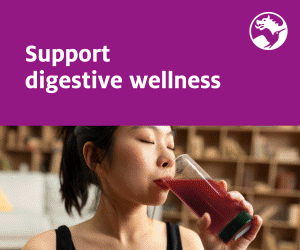A newly published paper in Biocatalysis and Agricultural Biotechnology from New Zealand researchers elucidates the association between K2 and recovery rates in individuals with COVID-19.
According to the authors, a “profound increase” in inactive matrix Gla protein (MGP) levels were observed in COVID-19 patients, indicating a poor K2 status and associated increased risk of mortality from comorbidities (such as obesity, diabetes, hypertension and cardiovascular diseases).
MGP is dependent on vitamin K2 menquinone-7 (MK-7) to become active ... and the more circulating MGP that is active, the more calcification in arteries is inhibited.
Vascular calcification is a process known to commence in elastin fibres, and elastin is a substantial player in ensuring tissues remain pliable and resilient. Elastic fibres are heavily present in lung tissue, where MGP, when activated, is considerably expressed — indicating the importance of MK-7 in supporting lung (pulmonary) function.
The researchers write: “Therefore, MK-7 deficiency can be a risk factor for increasing the severity of the COVID-19 disease and SARS-CoV-2 infected patients with comorbid conditions tend to develop acute manifestations.”
This paper strengthens the concept that vitamin K2 as MK-7 is a nutrient with substantial ability to protect pulmonary function during an active virus. It supports an earlier study published in April that evaluated MK-7 in 123 patients with COVID-19 and 184 controls, revealing a link between vitamin K2 deficiency and disease severity.
“Evidence continues to mount that MK-7’s mechanism of action has a considerable impact on protecting human health,” said NattoPharma Chief Medical Officer, Dr Hogne Vik.
“Of course, a dietary supplement is not a cure or a treatment but, with time, MK-7 can fortify the body’s resilience to age-related conditions and viral infection. This is the second study that associates K2 status with outcomes in COVID-19 patients. More research in this area is warranted and necessary.”




